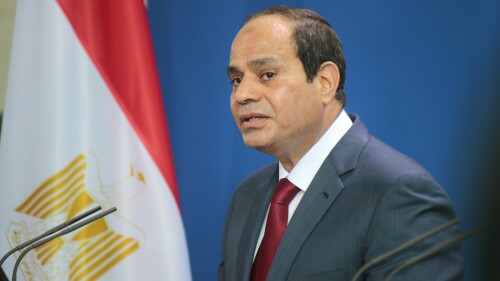Rashid Khalidi, the Edward Said professor of Arab studies at Columbia University, has gained notice for his extremist views on Israel, including recent profiles in both the New York Times and The Washington Post. That extremism comes out when he calls Israel an “apartheid system in creation” and a “racist state” that “brainwashed” Americans do not understand. Jerusalem, with its Jewish majority since the 1880s, he deems “an Arab city” whose control by Israeli “foreigners” is “unacceptable.” And so on.
These statements bear more than passing resemblance to the hyperbole that a Palestinian press hack might spout. And it’s no accident, actually, for Rashid Khalidi in fact once was a Palestinian press hack.
According to Thomas L. Friedman of the New York Times, writing on June 9, 1982, Mr. Khalidi was at that time “a director of the Palestinian press agency.” That would be Wikalat al-Anba al-Filastinija, or WAFA, the PLO press agency, where Mr. Khalidi’s wife, Mona, was chief English-language editor in 1976-82. Mr. Friedman quotes Mr. Khalidi in his official capacity saying that the Israelis are out to “crush the P.L.O.”
There is other evidence that Mr. Khalidi worked for the PLO. In a Jan. 6, 1981, article in the Christian Science Monitor, Mr. Khalidi used the word “we” referring to the PLO. In 1991, he served on the PLO “guidance committee” at the Madrid conference, along with such figures as Faisal Husseini, Hanan Ashrawi and Sari Nusseibeh. Mr. Khalidi stated, “We had political decisions to make and diplomatic strategy to decide.” On another occasion at Madrid, he told the press “We want this process to succeed and if doesn’t we don’t want it to be our fault.”
In 1985, Mr. Khalidi published an adulatory book on the PLO in which he personally thanked Yasser Arafat: “Permission to utilize the P.L.O. archives ... was generously given by the Chairman of the P.L.O. Executive Committee, Yasir Arafat. To him and to the dedicated individuals working in the office of the Chairman, the P.L.O. archive and the Palestine News Agency (WAFA), who extended every possible assistance to me on three trips to Tunis, I owe deep thanks.”
Today, however, Mr. Khalidi distances himself from his past. In reply to our questions, he wrote that between 1976 and 1983, “I was teaching full time as an Assistant Professor in the Political Studies and Public Administration Dept. at the American University of Beirut, published two books and several articles, and also was a research fellow at the independent Institute for Palestine Studies,” and says he had no time for anything else. Mr. Khalidi dismisses the allegation that he served as a PLO spokesman, saying, “I often spoke to journalists in Beirut, who usually cited me without attribution as a well-informed Palestinian source. If some misidentified me at the time, I am not aware of it.”
In truth, Mr. Khalidi is still spinning for the Palestinian leadership. For example, although the Palestinian Authority (PA) is ruled at the whim of a despotic Yasser Arafat, Mr. Khalidi argues the PA has an “elected leader.” He asserts that Israel’s government “refused to negotiate” with the PA when, in reality, Israel has formally negotiated with the PA since 1993.
Moreover, Mr. Khalidi would like us to believe that Israel has “violated every one of the seven agreements it signed with the PLO since that time.” This is, of course, a transparent inversion of the truth. While Israel fulfilled its obligations, the Palestinians always found a way not to uphold any agreement with Israel. As the State Department noted in 2002: “The PLO has not complied with its commitments to assume responsibility over all PLO elements and personnel to assure their compliance with the renunciation of the use of terrorism, prevent violations, and discipline violators.” Conversely, in the judgment of several of the American mediators, including Dennis Ross, “Both Barak and Clinton were prepared to do what was necessary to reach agreement. Both were up to the challenge. Neither shied away from the risks inherent in confronting history and mythology. Can one say the same about Arafat? Unfortunately not.”
Even as he luxuriates today in the title of a named professorship at Columbia University, the man who defended the PLO when it was listed as a terrorist organization by the State Department and killed American citizens (including an ambassador) today remains a de facto Arafat spokesman.
Sometimes his wording remains the same. In 1982, Mr. Khalidi stated that the Israelis were out to “crush the PLO.” In 2003, he declared that Undersecretary of Defense for Policy Douglas Feith and his former law partner favored “crushing the Palestinians.”
“Professor” Rashid Khalidi has been shilling for terrorists since the early 1980s. Neither his vocabulary nor his agenda has changed, except that he now oversees a major university’s interpretation of the Arab-Israeli conflict.
Asaf Romirowsky is a research fellow for the Middle East Forum. Jonathan Calt Harris, a former reporter for Time magazine and managing editor with the Middle East Forum, is a writer in Illinois.







